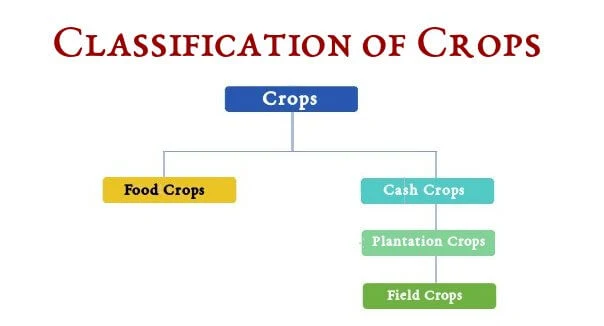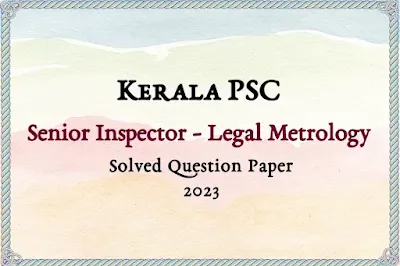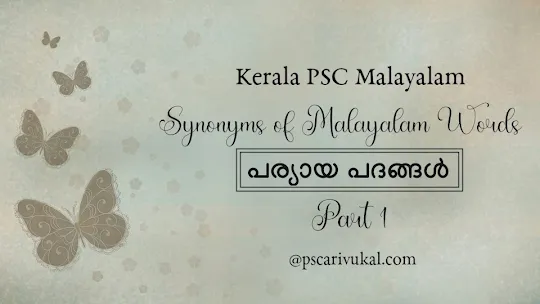Having a solid grasp of these figurative expressions not only enrich the language but also can give you an edge in the General English section in your exam preparation.
In this post, we’ll delve into some commonly used idioms and phrases that frequently appear in the Kerala PSC exams, helping you build a strong foundation for success.
What Are Idioms and Phrases?
Before diving into the list of idioms, let’s first understand what idioms and phrases are.
Idioms are expressions whose meanings are not derived from the literal meanings of the individual words.
For example, "a piece of cake" means something that is very easy, not an actual piece of cake.
Phrases are groups of words that convey a particular meaning but might not be complete sentences. They are often figurative, making them a bit tricky for those unfamiliar with them.
List of Idioms and Phrases for Kerala PSC
Below is the list of some of the idioms and phrases that frequently asked in Kerala PSC exams, along with their meanings.
A
- A bed of roses = a happy comfortable situation.
- A big bug = a person of importance. (LDC, 2017)
- A bitter pill to swallow = something that is very unpleasant but which must be accepted.
- A black sheep = one who has a bad reputation.
- A blessing in disguise = a good thing that initially seems bad.
- A bolt from the blue = a sudden and entirely unexpected disaster; a shock.
- A dime a dozen = plenty and common. (Computer Operator / Analyst, 2025)
- A dog's life = a miserable life.
- A fish out of water = to be in a uncomfortable position.
- A hard nut / tough nut to crack = a difficult problem; an individual / opponent who is difficult to deal with.
- A hot potato = a controversial issue.
- A piece of cake = very easy task. (LDC Alappuzha, 2024)
- A pretty kettle fish = a situation that makes trouble.
- A red-letter day = a very important day. (Degree Level Prelims Stage II, 2025)
- A slap on the wrist = a mild punishment.
- A stone throw = a short distance.
- A white lie = a harmless lie.
- All ears = listening attentively / Perfectly attentive. (Degree Prelims 2023)
- All in one piece = undamaged, unbroken, or in good condition.
- An apple of discord = the subject of envy or quarrel.
- An arm and a leg = very expensive. (Village Field Assistant, 2025)
- An axe to grind = have a selfish motive.
- Apple in the eye = a very cherished one.
- Apple of the discord = cause of dispute.
- At one's wit's end = in a state of confusion.
- At the eleventh hour = at the last moment.
- At the drop of a hat = instantly.
- At sixes and sevens = confused or difficult / State of confusion. (Degree level prelims Stage III, 2023; Store Keeper (Main), 2025)
- Around the corner / Round the corner = very near; about to happen. (Degree level prelims Stage III, 2024)
B
- Bag and baggage = with all one’s belongings.
- Baker's dozen = thirteen.
- Beat around the bush = never come to the point / avoid saying something. (Field Officer, 2025)
- Bell the cat = to take a risk.
- Between the devil and sea = between two dangers.
- Bite the bullet = Unpleasant situation. (SI Mains, 2025)
- Bite the tongue = avoid talking.
- Bite off more than you can chew = to take on a task that is too difficult or complicated to complete. (Instructor in Commerce, 2023)
- Bona fide (Latin) = Good faith. (Field Assistant, Health Services, 2017)
- Bone of contention = subject of dispute or quarrel; the subject matter, cause or focal point of a disagreement or argument. (Clerk (various), 2024; Civil Police Officer, 2018)
- Bolt from the blue = sudden and unexpected calamity.
- Black and white = in written / printed form.
- Blood ran cold / makes your blood freeze = horrified; something that made you feel very much frightened.
- Blue blood = of aristocratic or noble birth.
- Blue moon = rarely, seldom.
- Bluestocking = a woman having literary tastes.
- Bread and butter = main source of income; one's livelihood.
- Break a leg = to wish good luck.
- Break the ice = to say something to relieve tension in a constrained situation.
- Broken reed = a weak or ineffectual person; one whom you can't trust.
- When we needed help, our closed relative disappointed us by proving to be a ––––––––––. (Legal Assistant, 2024)
- Burn the midnight oil = work very hard; to work/study late into the night. (Confidential Assistant, 2024)
- Bury the hatchet = Make peace.
- By hook or by crook = by any means possible.
C
- Call it a day = finish working for the day.
- Cats and dogs = raining heavily.
- Caught between a rock and a hard place = to be in a difficult situation where both options are equally undesirable.
- Chip of the old block = characteristics of the ancestors.
- Cock and bull story = unbelievable story.
- Crocodile tears = insincere sorrow.
- Cry over spilled milk = to feel sorry or sad about something that has already happened.
- Culture vulture = someone who is very keen to experience art and literature.
- Cupboard love = affection shown purely to gain something from someone.
- Cut a dash = be stylish and impressive.
- Cut one's cloth according to one's cloth = live within one's income.
D
- Dog eat dog = competitive sales.
- Dot the I's and cross the T's = giving finishing touches.
- Dutch courage = courage which is created by drinking alcohol.
E
- Ended in a fiasco = complete failure.
F
- Feet of clay = a weakness or a flaw in the character of a greatly respected person.
- Fish out of water = uncomfortable or awkward in an unfamiliar situation.
- Fit as a fiddle = being in good health.
- French leave = absence without permission.
G
- Get the axe = to be fired, discharged, expelled, or rejected; lose the job. (Village Field Assistant, 2017)
- Gift of the gab = power of eloquence; the ability to speak easily and confidently; ability to persuade people verbally. (Armed SI SR for ST, 2023)
- Go on a wild goose chase = to do something pointless.
- Gordian knot = a difficult problem or task.
- Grease a man’s palm = bribe.
H
- Have the whip hand = to be in a position to control. (Assistant Prison Officer, 2025)
- Have a yen for = to crave or desire something; to pine for.
- Head over heels = excited. (Woman Police Constable, 2017)
- Hear it on the grapevine = hear news through unofficial channels such as gossips, rumors etc.
- Herculian task = a tough task. Clerk Tamil & Kannada knowing, 2024)
- Hit the nail on the head = said exactly the right thing; guess aright; land on the right answer. (LDC, 2017)
- Hit the sack = go to sleep.
- Hobson’s choice = no choice at all.
- Hold one's own = maintain one's position or opinion obstinately against all odds.
- Hot under the collar = angry.
I
- Ibid = in the same place.
- Iliad of woes = used when one is confronted with a succession of tragedies
- In black and white = in written form. (Clerk, 2025)
- In a nutshell = in short. (Clerk by transfer, 2024)
- In weal and woe = in prosperity and adversity. (Junior Typist, Apex societies, 2023)
J
- Jack of all trades but master of none = someone who knows something of everything but is not an expert in any field.
K
- Keep someone at arm's length = avoid being too close or friendly with someone.
- Keep the wolf from the door = earn enough money to save oneself from starvation; to escape from poverty. (Sr. Superintendent/Asst. District Lottery Officer, 2016)
- Kick the bucket = to die. (UP School Teacher 2025; Marketing Organizer, 2024; Care Taker (Male), 2018)
L
- Leave someone in the lurch = abandon someone in circumstances of danger and difficulty.
- Let the cat out of the bag = accidentally reveal a secret / to reveal a secret carelessly. (Assistant Time Keeper Main exam, 2025)
- Loaves and fishes = material benefits.
- Lose heart = lose hope.
M
- Make a bee line = proceed in a straight line.
- Make both ends meet = manage to live within one's income.
- Make eyes at = look lovingly at.
- Move heaven and earth = make every possible effort.
O
- On the trot = consecutively.
- Once in a blue moon = something that happens very rarely; Seldom. (Police Constable, 2023; HST English, 2025)
- Out at elbows = Penurious, Impoverished. (Special Branch Assistant, 2022)
P
- Palmy days = days of prosperity and happiness.
- Parish Pump = of local importance.
- Pay off old scores = settle accounts; to get revenge on someone for a grievance.
- Pay through the nose = pay heavily or at an exorbitant price.
- Play with fire = do something dangerous or risky.
- Pros and cons = For and against.
- Put one's foot down = to use one's authority to stop something from happening.
- Put one's foot in it = say something foolish or make an awkward mistake.
Q
- Queen's weather = pleasant weather for a special outdoor event.
- Queer Fish = Strange person.
- Quaking in its boots = to tremble with fear or nervousness.
R
- Rack and ruin = utter destruction.
- Raining cats and dogs = raining heavily. (Village Field Assistant, 2017)
- Rat race = fierce competition for power.
- Read between the lines = a deeper or hidden meaning in a text or a statement, beyond what is explicitly stated.
- Red-letter day = a day of special significance or opportunity.
- Rhyming slang and rhyming monsters = people those who keep rhyming in conversation, in season and out of season
- Rise from the ranks = gradually advance to positions of more importance in an organization from lower ranks.
S
- Salt of the earth = the best, most valuable members of society; those reaching perfection in all ways.
- Set the Thames on fire = achieve something unusually good. (Secretary, LSG, 2024)
- Show a clean pair of heels = to escape.
- Show the white feather = show signs of cowardice.
- Sit on the fence = avoid making a decision / unable to reach a decision. (Lab Assistant, HSE, 2017)
- Small fry = Unimportant person.
- Small talk = talk about trivial matters.
- Smell a rat = suspect that something is wrong.
- Spill the beans = to reveal a secret. (Assistant Gr.II/ Data Entry Operator, 2024)
- Square peg in a round hole = misfit.
- Storm in the tea cup = big fuss over trivial matters.
T
- Take a rain check = to refuse an offer politely.
- Take shadow for the substance = be easily deceived.
- Take the bull by the horn = face the problem boldly.
- Tie yourself up in knots = to become very confused when you are trying to explain something.
- Tit for tat = apt answer.
- Turned the corner = to pass through a difficult period and beginning to recover. (Clerk Malayalam & Kannada Knowing, 2024)
- To be led by the nose = to be submissive; To be completely controlled or influenced by someone else. (Office Attender Gr II, 2024)
- To be in the pink = to be in excellent health.
- To bite off more than one can chew = to take on difficult responsibilities that is beyond one's capability.
- To clam up = to refuse to speak. (HST English, 2025)
- To cry over spilt milk = to feel sorry or sad about something that has already happened. (Junior Assistant, 2023)
- To cut corners = to do something badly or cheaply to save money or time. (Male/Female Warden, 2018)
- To end in smoke = to ruin oneself.
- To fly off the handle = to lose one’s temper suddenly. (KAS, 2020)
- To drive home = to emphasize. (Beat Forest Officer, 2018)
- To get a windfall = to get an unexpected fortune.
- To get into hot water / hot soup = get into trouble.
- To go down in flames = to fail suddenly and spectacularly. (Typist/LDTypist/Reporter Gr II, 2023)
- To have a bee in your bonnet = to be obsessed with something.
- To have an axe to grind = to have a selfish interest to serve.
- To keep one's head above water = keep out of debt.
- To leave someone in the lurch = to desert someone in his difficulties. (Senior Superintendent/ Assistant Treasury Officer, 2022)
- To let the cat out of the bag = to reveal a secret unintentionally. (Assistant Kannada Knowing, 2024; Junior Assistant Degree Level Mains, 2023; HST English, 2025)
- To live from hand to mouth = without any provision for future.
- To make a clean breast of = to confess without reserve. (Junior Typist, Apex societies, 2023)
- To make stock of = to be scrupulous about.
- To make both ends meet = just have enough money to meet one's day-to-day needs.
- To make the wind out of sails = dishearten. (Matron Gr II, 2024)
- To shoulder larger roles = to accept responsibility for more difficult or bad situations.
- To show white feathers = to show cowardice.
- To sit on the fence = to remain neutral. (Civil Excise Officer, 2023)
- To take the reins = to assume command; to take control of something. (SI Mains, 2023)
- To turn the corner = to pass the crisis. (Clerk (Kannada & Malayalam Knowing), 2024)
- Too many irons in the fire = engaged in too many enterprises at the same time. (LD Typist / Steno / Confidential Assistant, 2025)
U
- Under the weather = to feel sick.
V
- Verbal diarrhoea = talking too much or continuously without thinking.
- Verbatim = word for word.
Y
- Your guess is as good as mine = I do not know; To have no idea of the answer. (Deputy Manager, 2023)
W
- Weathering the storm = to successfully get through a difficult situation with minimal damage.
- When pigs fly = something never happens.
- White Elephant = Expensive but useless.
Mastering idioms and phrases is not just about memorizing definitions; it's about understanding their contextual meaning and learning to use them naturally.
For Kerala PSC aspirants, familiarizing yourself with these idioms and practicing their usage, you’ll not only perform better in the exam but also communicate more effectively in everyday life.
Thanks for reading!!!







Post a Comment
Post a Comment